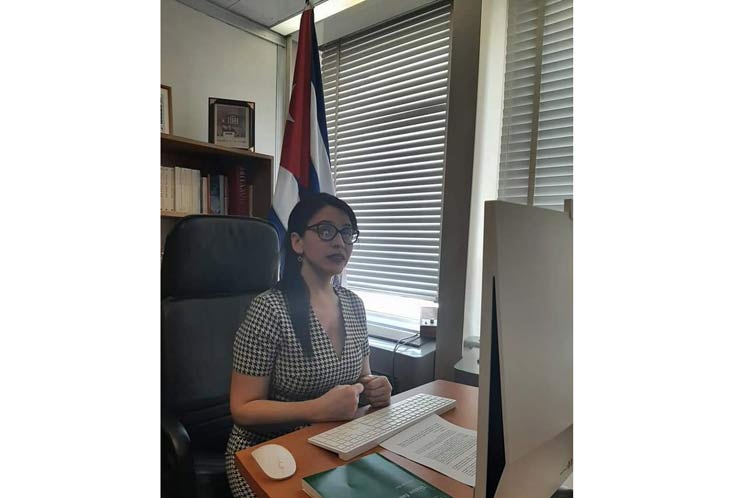‘Our people have suffered for over six decades a blockade that was tightened during the outgoing administration of the US government. This illegal and genocidal policy affects the development of sciences and scientific cooperation, cultural exchange between our peoples and access to information and communication technologies,’ she highlighted.
On speaking at the 211th Executive Council of UNESCO, the ambassador also pointed out the consequences of the blockade on the development of distance education, a modality adopted by countries to maintain education in the scenario of the Covid-19 pandemic.
According to Esquivel, it is time to put solidarity and international cooperation before conflicts on the planet, and to demand in one voice the lifting of the unilateral coercive measures imposed on some countries, which have had a strong impact on the management of the health crisis.
The diplomat also called in the videoconference forum to abandon selfishness and narrow interests, to choose the path of inclusion, multilateralism and respect for the self-determination of peoples.
‘UNESCO has a fundamental responsibility in the global reflection on the ethical dimensions of this unprecedented crisis. The moment demands coordinated, decisive and innovative political action based on the principles of the United Nations Charter,’ the diplomat insisted.
rly/omr/mem/wmr









